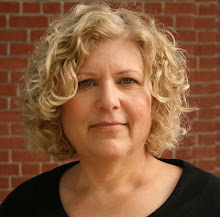"It's simple", I responded. "They aren't undecided at all."
"Explain that one", was his reply.
I've been recently reading research on unconscious mental processing (for the book I have just finished writing). In the case of the election, when people say they are undecided, I think they actually have decided who they want to vote for, but it's not a conscious, rational, decision. I'ts an emotional, unconscious decision. The undecided voters haven't found a rational reason to put on top of their unconscious decision. The decided voters made an unconscious emotional decision too, but they have figured out rational reasons to tell themselves and others about why they made the decision they made. (The reasons, by the way, are not really accurate - the research calls this "confabulation", meaning people make up reasons which they believe are true, but actually aren't. The real reasons are emotional and non-verbal).
This unconscious emotional decision with a rational reason on top is true, actually of all decisions we make. (See the blog before this one on choices).
When Colin Powell announced he was supporting Barack Obama, one person I know, that had been undecided, immediately said he was now decided. Why? He said that if Colin Powell likes Barack Obama that must mean that Obama will be good for the troops. And, he continued, caring about our troops was always very important to him. He had never said before that he was undecided because he didn't know where the candidates stood on the troops. I think my friend had decided for quite some time that he wanted to vote for Obama, but that decision was unconscious, and he couldn't figure out a reason that he could say to himself and others that was consistent with his self-image, his persona. "Good for the troops" was the rational, logical, reason he could put on top of the non-verbalized unconscious decision. And now he was suddenly "decided".
We make the decision first, unconsciously, and then search for some kind of reason to stick on top that will sound logical and will fit with our persona.




3 comments:
I'm curious about how satisfied people are with the choices they make. Obviously if it is something like voting, a person can't go back and change his mind. But with purchasing a product, the buyer can review his decision and frequently return the item and purchase another. Since I've been reading your articles and blog, Susan, I've become aware of my subconscious buying decisions, but I find that once I get the purchase home, I continue to weigh the decision and may return the item I purchased. There is a real cost to a retailer for restocking an item, that may exceed 'shipping and handling' charges. Is there any research about consumer behavior after a purchase? How does that emotional decision relate to satisfaction with the decision that was made? (Maybe this is the topic of your next book???)
Fascinating. I'm sending this one around to relatives. Like your husband, we have been scratching our heads at the "undecideds" as well. Thanks for sharing!
@tinkerbella, I recall a lot of information about consumer choice around and after buying decisions in Barry Schwarz's book The Paradox of Choice: Why More is Less. Here's a video from his TED talk.
Good post. I think "Undecided" can also mean "I'm not ready to explain this to you" or "It's not really your business."
Post a Comment